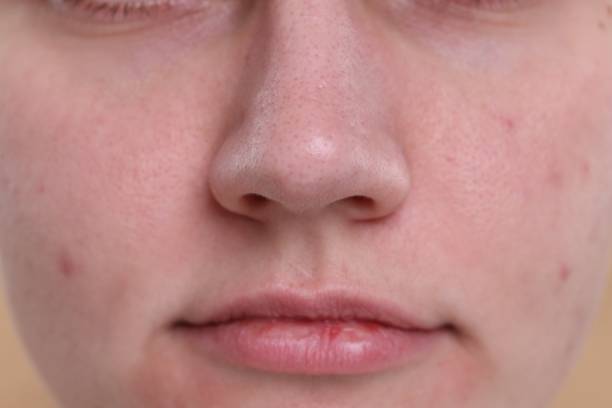How To Identify And Treat Redness Of The Skin Around Your Nose
Redness of the skin around the nose is a common skin concern affecting people of all ages. It can range from mild irritation to persistent redness, often causing discomfort and self-consciousness. Identifying the underlying cause of this redness is the first step toward finding an effective solution.
Redness of the skin around the nose: causes and treatment(احمرار الجلد حول الأنف: الأسباب والعلاج) involve several factors, including skin sensitivity, environmental triggers, and underlying medical conditions. Knowing these causes helps in selecting the right treatment that soothes and restores the skin’s natural tone.

Common Causes of Redness Around the Nose
Skin Irritation and Allergies
Exposure to harsh skincare products, allergens, or frequent touching can irritate the delicate skin around the nose. This irritation often leads to redness and sometimes itching or dryness. Identifying and avoiding irritants can significantly improve the condition.
Rosacea
Rosacea is a chronic skin condition that primarily affects the face, causing persistent redness, visible blood vessels, and sometimes pimples. The skin around the nose is a common area where rosacea manifests, with flare-ups triggered by stress, hot beverages, or sun exposure.
Seborrheic Dermatitis
This condition causes red, flaky, and itchy skin, mainly around the nose and other oily areas of the face. It is linked to overgrowth of yeast on the skin and requires appropriate antifungal treatments for control.
Acne and Folliculitis
Blocked pores and inflamed hair follicles in the skin around the nose can cause redness due to acne or folliculitis. Keeping the skin clean and using non-comedogenic products helps reduce inflammation and redness.
Environmental Factors
Cold weather, wind, or excessive sun exposure can dry out skin, resulting in redness. Protecting the skin with moisturizers and sunscreen plays a vital role in prevention.
Effective Treatments for Redness of the Skin Around the Nose
Gentle Skincare Routine
Using mild, fragrance-free cleansers and moisturizers replenishes skin without aggravating redness. Avoid over-exfoliating or using abrasive scrubs, which can worsen irritation.
Targeted Medications
Topical treatments such as anti-inflammatory creams or antifungals are often prescribed for underlying causes like rosacea or seborrheic dermatitis. These help reduce inflammation and control redness effectively.
Lifestyle Adjustments
Avoiding known triggers such as spicy foods, extreme temperatures, and stress can reduce flare-ups. Maintaining hydration and a balanced diet supports overall skin health.
Sun Protection
Daily use of broad-spectrum sunscreen prevents redness from UV damage, especially important for sensitive skin around the nose.
When to Consult a Specialist
If redness persists despite home care or is accompanied by pain, swelling, or scaling, professional evaluation is important. Early diagnosis of conditions like rosacea or dermatitis can prevent progression and scarring.
Daily Habits to Prevent Redness Around the Nose
Avoid harsh skin products or frequent touching of the face
Use hypoallergenic skincare suited to your skin type
Protect skin daily with sunscreen
Maintain a healthy diet rich in antioxidants
Manage stress through relaxation techniques
Monitoring and Tracking Skin Changes
Keeping a journal of skin condition, flare-up triggers, and product usage helps identify patterns. This empowers you to make informed decisions about your skincare regimen.
Frequently Asked Questions
What are the main causes of redness around the nose?
Redness can stem from irritation, rosacea, seborrheic dermatitis, acne, or environmental factors.
How can I soothe redness at home?
Use gentle cleansers, moisturize regularly, avoid irritants, and apply sunscreen.
When should I see a doctor for redness around my nose?
Consult a healthcare professional if redness is severe, persistent, or accompanied by pain and swelling.
Can diet influence skin redness?
Yes, foods causing inflammation or allergies may worsen redness, while a balanced diet supports skin health.
Is rosacea curable?
Rosacea is a chronic condition but can be managed effectively with proper treatment.
What skincare ingredients help reduce redness?
Look for soothing ingredients like niacinamide, aloe vera, and ceramides.